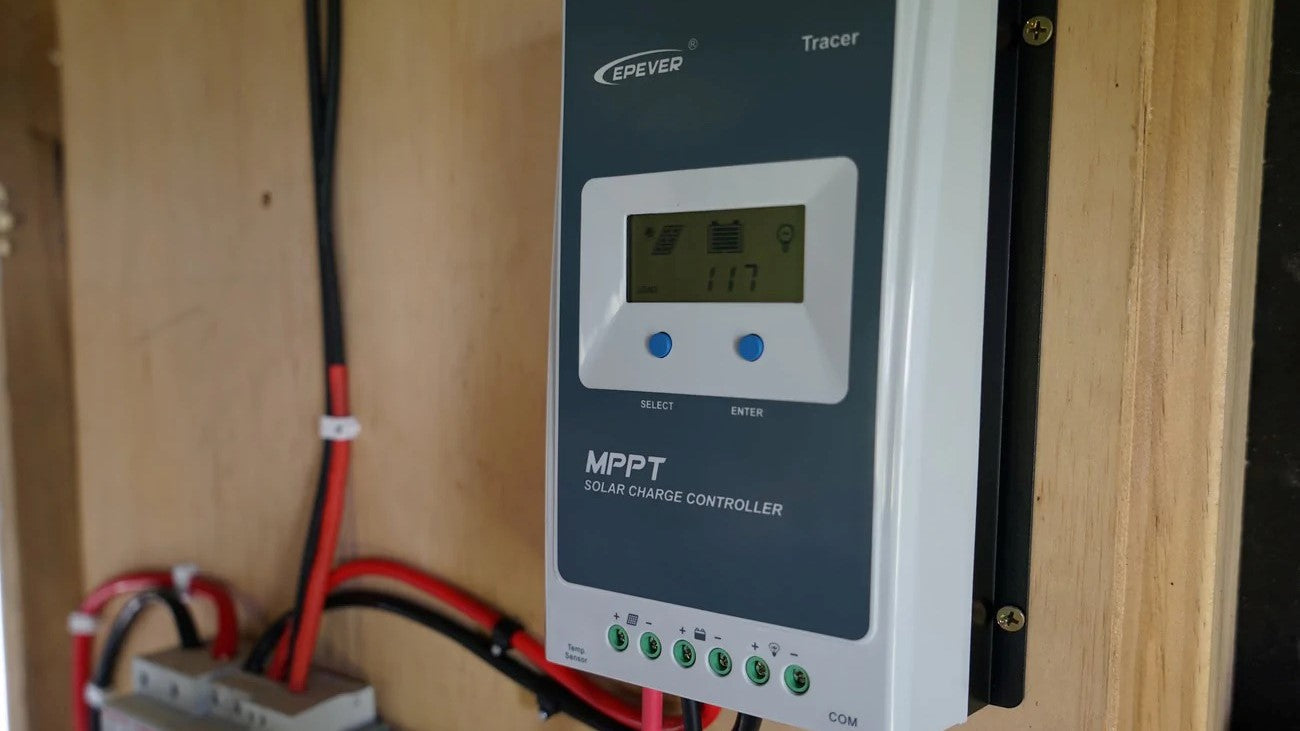A charge controller is an essential component of every off-grid solar system, as it protects the battery from overcharging and optimises the energy coming from the solar panels. Because it provides such a vital function, it’s important that you get the right one for the job.
In today’s blog, we will go over the different types of charge controllers you will encounter in off-grid solar to give you a better idea of which one you will need for your off-grid solar project. We now offer only one kind of charge controller, Maximum Power Point Track (MPPT), but we will also discuss Pulse-width Modulation (PWM).
Pulse-width Modulation
A PWM charge controller has a more basic charging function compared to the MPPT. An average PWM charge controller will only have 75 - 80% efficiency because of the simplified way the charging function was designed, meaning it does not convert all the solar panel’s larger voltage potential into current.
Consider buying the PWM Charge controller if:
- Your solar array is small with only a few solar panels
- Your array’s nominal voltage is slightly above but close to the battery voltage.

Maximum Power Point Tracker
MPPT charge controllers are more complex and efficient, and thus are usually more expensive than PWM controllers. The electronics allow MPPT controllers to operate the Maximum Power Voltage (Vmp) of the solar panel. This provides 5-25% more efficiency than the PWM, giving our Tracer 3210An series a recorded efficiency of 98%.
It is also more cost effective to run a MPPT charge controller when you have bigger PV arrays, because they usually have a higher operating voltage than the battery voltage, so the controller can harvest more solar energy by converting all the extra voltage into current.
For all of our off-grid solar kits, we've chosen to use MPPT controllers, this is because we believe the efficiency outweighs the extra cost.

Which is better: PWM charge controllers or MPPT charge controllers?
Since PWM charge controllers are more basic, converting only a portion of the solar panel’s voltage (at about 75-80% efficiency) into current, our pick is the more efficient and complex MPPT charge controllers with a recorded efficiency of 98%, especially if you’ll have more than a couple panels.


